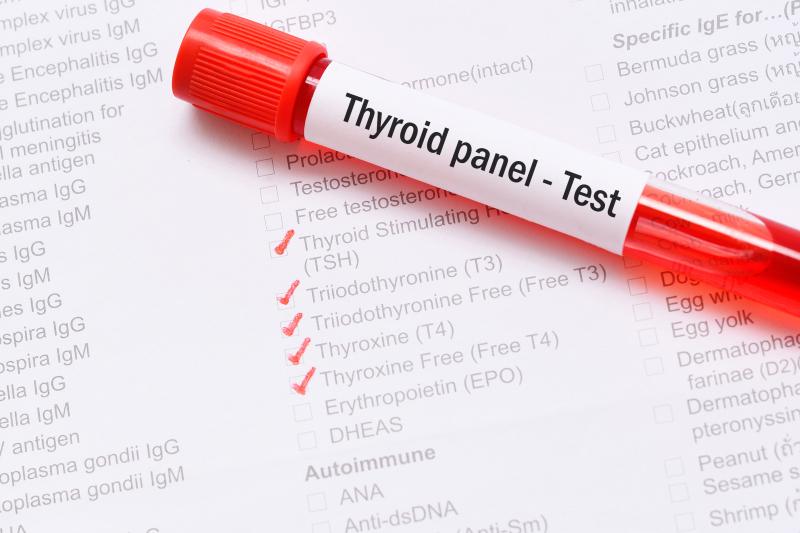
A significant association exists between hypothyroidism and sleep apnoea after adjusting for potential confounding variables, results of a US study have shown.
This cross-sectional study utilized the US National Health and Nutrition Examination Survey from 2007 to 2008 and included all participants aged ≥18 years who met the inclusion criteria.
Participants not on antithyroid medication with a thyroid-stimulating hormone (TSH) >5.6 mIU/L and those on thyroid hormone replacement regardless of TSH were categorized as hypothyroid. Those not on thyroid hormone replacement or antithyroid medication with a TSH ≥0.34 and ≤5.6 mIU/L were categorized as euthyroid.
Sleep apnoea diagnosis was based on the participants’ response when asked whether they had been diagnosed with the said condition by their doctors. The association between hypothyroidism and sleep apnoea was examined through multivariate logistic regression analysis.
Of the 5,515 adults who were included in the data analysis, 9.47 percent had been diagnosed with hypothyroidism and 1.19 percent with hyperthyroidism. Hypothyroidism was found to be significantly associated with sleep apnoea (odds ratio, 1.88, 95 percent CI, 1.24–2.84; p<0.01) in multivariate logistic regression analysis adjusted for body mass index, healthcare access, demographics, socioeconomic factors, smoking, alcohol use and other comorbidities.
A case study involving a 79-year-old man with significant cardiovascular comorbidities who presented with out-of-hospital respiratory arrest was found to have severe obstructive sleep apnoea and hypothyroidism. This case indicated that the combination of sleep apnoea and hypothyroidism can result in “catastrophic manifestation.” [BMJ Case Rep 2019;doi:10.1136/bcr-2019-230163]
Moreover, “the unusually long apnoea could be a feature prompting further workup for possible hypothyroidism,” the researchers said. [BMJ Case Rep 2019;doi:10.1136/bcr-2019-230163]